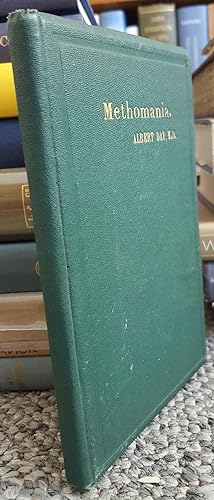STORER, HORATIO R ROBINSON 1830 1922 (2 Ergebnisse)
Produktart
- Alle Produktarten
- Bücher (2)
- Magazine & Zeitschriften
- Comics
- Noten
- Kunst, Grafik & Poster
- Fotografien
- Karten
-
Manuskripte &
Papierantiquitäten
Zustand
- Alle
- Neu
- Antiquarisch/Gebraucht
Einband
- alle Einbände
- Hardcover
- Softcover
Weitere Eigenschaften
- Erstausgabe
- Signiert (1)
- Schutzumschlag
- Angebotsfoto (1)
- Kein Print-on-Demand
Land des Verkäufers
Verkäuferbewertung
-
The Memorials of Edward Jenner 1796-1896. Address delivered at the centennial celebration held at Atlanta, Ga. May, 1896. Reprinted from the Journal of the American Medical Association, August 8, 1896.
Verlag: Chicago: American Medical Association Press, 1896., 1896
Anbieter: Ted Kottler, Bookseller, Redondo Beach, CA, USA
Erstausgabe
Hardcover. Zustand: Very Good. No Jacket. 1st Edition. First Separate Edition. 19 pp. Recent cloth, with original printed wrappers bound in. Very Good. 'A number of medals were struck to commemorate Edward Jenner's research and the centennial of the first vaccinations' (To Slay the Devouring Monster: The Vaccination Experiments of Benjamin Waterhouse, Rare Books and Special Collections, Francis A. Countway Library of Medicine, 2000, A Catalog of the Exhibit; on the Countway Web site). In 1900, the Storer Memorial Collection of Medical Medals was bequeathed by Dr. Horatio R. Storer to the Boston Medical Library in memory of Dr. David Humphreys Storer; the address offered here details that collection.
-
Methomania: A Treatise on Alcoholic Poisoning. With an Appendix by Horatio R. Storer. (PRESENTATION COPY TO HIS SISTER OF THE FIRST EDITION.)
Verlag: Boston: James Campbell, 1867., 1867
Anbieter: Ted Kottler, Bookseller, Redondo Beach, CA, USA
Buch Erstausgabe Signiert
Hardcover. Zustand: Good. No Jacket. 1st Edition. Presentation copy of the First Edition, inscribed to his sister and signed by Day on the front flyleaf. 70 pp, 1 leaf (ads). Original green cloth, small 8vo. A brown offsetting-type stain has affected the upper margin of the pages throughout the book; the inscription is also partly affected but 'regards of her Brother' and Day's signature remain fully legible. Else Very Good. A second edition can be identified by the words 'Second Edition' printed on the copyright page. Storer's Appendix is pp. 55-67. 'Born in Maine, Albert Day was a physician, temperance advocate and leader in the treatment of alcoholism. Day was elected to the Massachusetts State Legislature in 1856 and secured a charter for the country's first alcoholism asylum. He wished to combine moral therapy with scientific treatment for the alcoholic. Day served as head of many alcoholism asylums. In 1893 he retired, taking several of his recovering patients home with him to Massachusetts' (picturehistory Web site). For a full discussion of Day's ideas and of this book, see John William Crowley & William L. White, Drunkard's refuge: the lessons of the New York State Inebriate Asylum, 2004, pp. 57-62. 'Albert Day in his 1867 text, Methomania, spoke not only of recovery for his patients, but even suggested the concept of 'partial recovery' ' (White, 'Recovery: Its History and Renaissance as an Organizing Construct Concerning Alcohol and Other Drug Problems', Alcoholism Treatment Quarterly, Vol. 23, Issue 1, 2005, pp. 3-15). Storer 'asserted women were made into 'inebriates by doctors and and nurses and relatives' who used alcohol for painful menstruation or after birth' (Janet Lynne Golden, Message in a Bottle: The Making of Fetal Alcohol Syndrome, 2005, p. 27). 'The words of Horatio Storer . . . offer a sense of how disturbing habitual drunkenness was for Gilded Age physicians and for middle-class society generally when it affected the 'fairer sex': 'A debauched woman is always, everywhere, a more terrible object to behold than a brutish man. We look to see them a little nearer to the angels than ourselves, and so their fall seems greater' ' (Sarah Tracy, Alcoholism in America: From Reconstruction to Prohibition, 2005, p. 46). Signed by Author(s).



